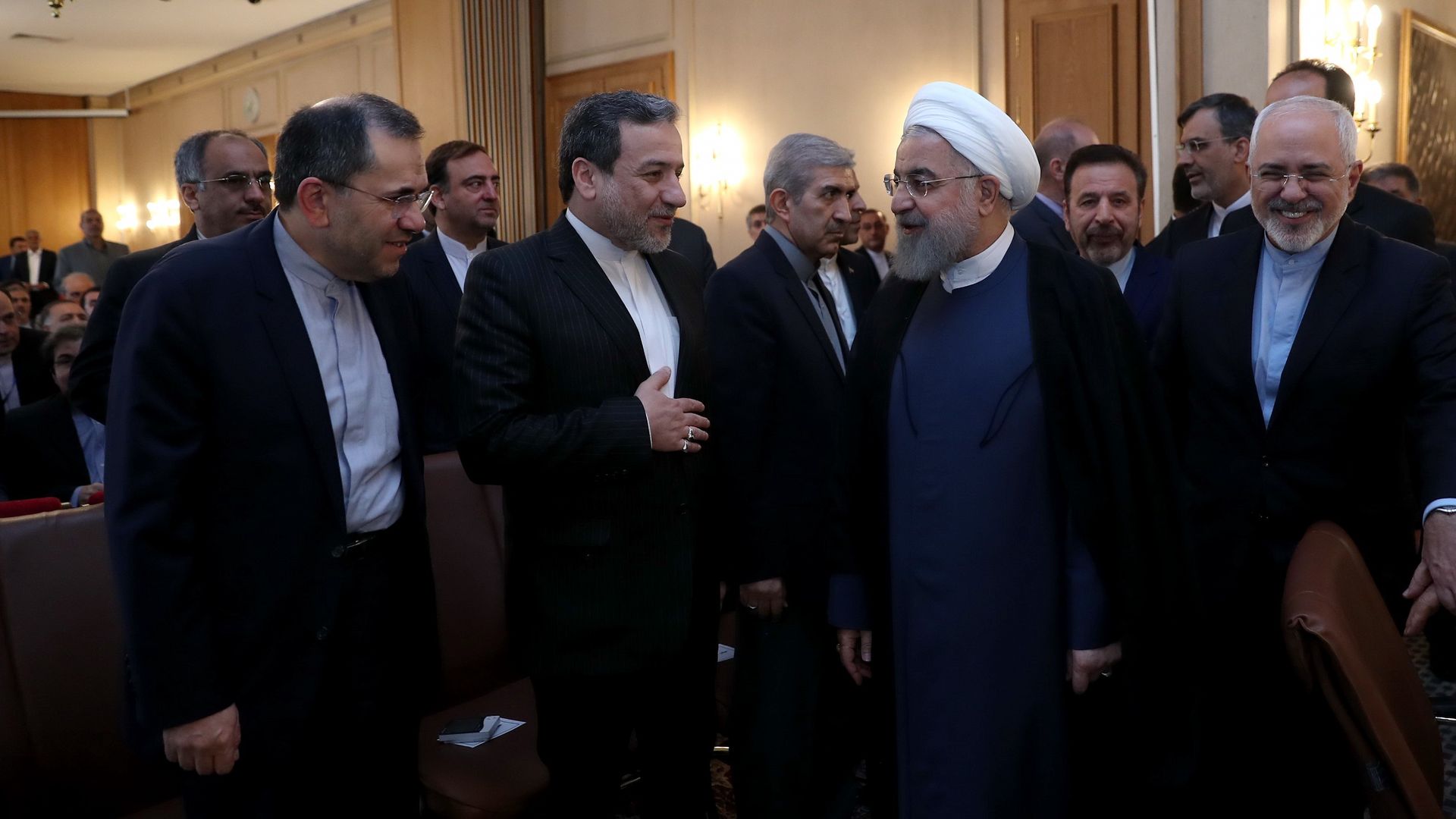Updated Jul 30, 2018 - World
Expert VoicesU.S. and Iran ramp up war of words ahead of sanctions
Add Axios as your preferred source to
see more of our stories on Google.

Iranian President Hassan Rouhani and Iranian Foreign Minister Javad Zarif meet with diplomatic representatives of Iran, in Tehran, on July 22, 2018. Photo: Iranian Presidency/Anadolu Agency via Getty Images
